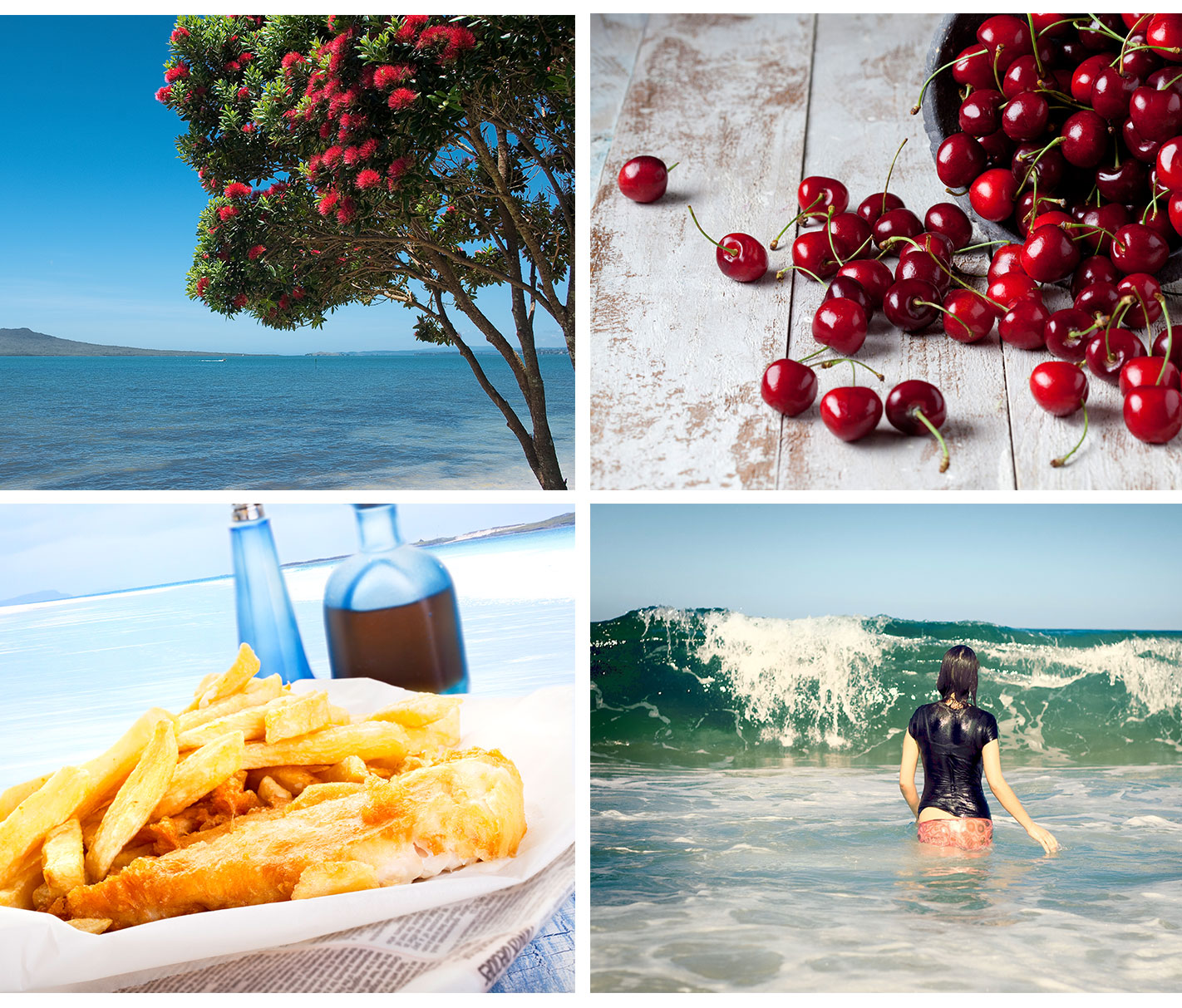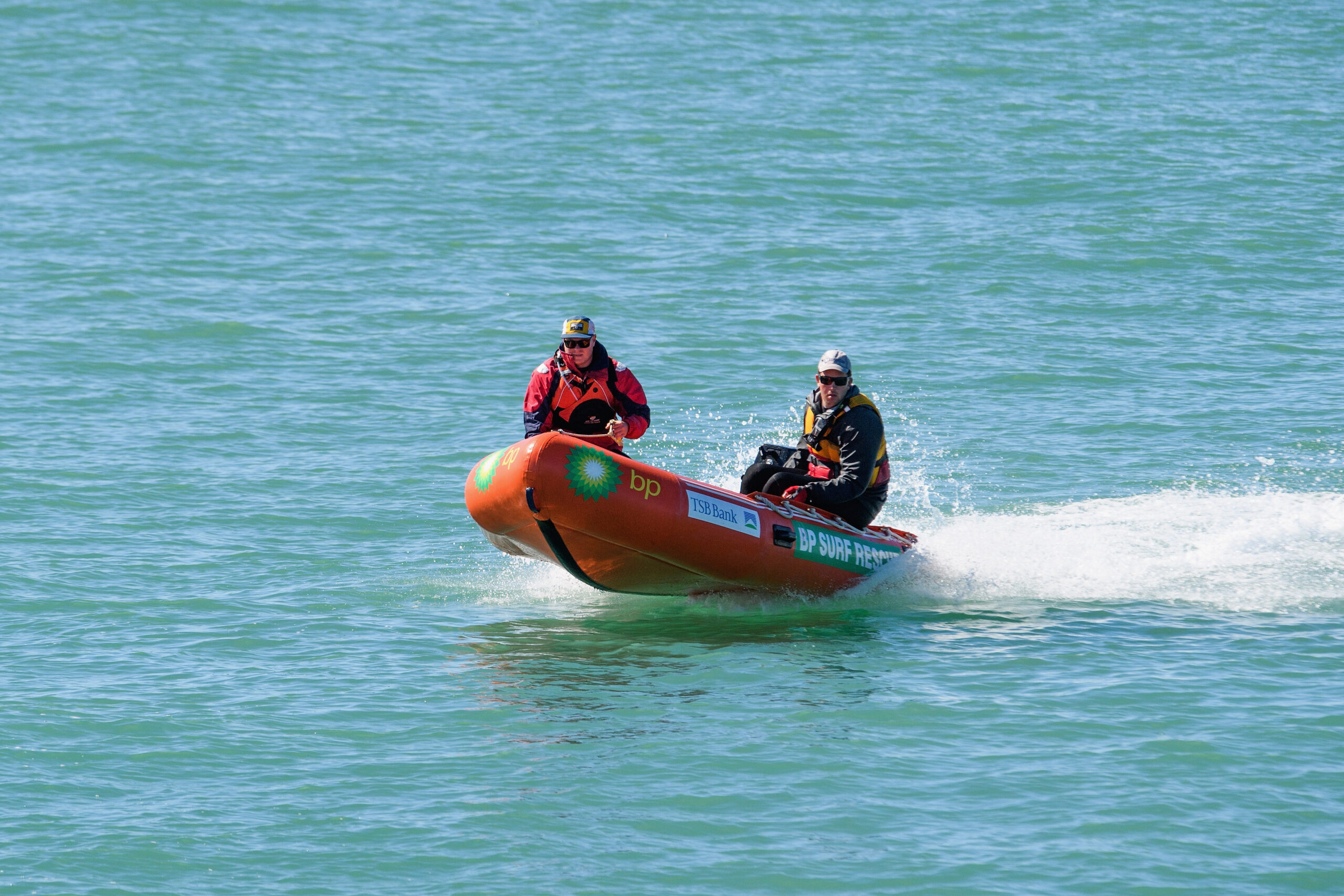“Our family lived in Upper Hutt, miles from the beach.
Dad took us to the national surf-lifesaving champs at Titahi Bay in 1968 and bumped into someone he knew who was from Paekakariki.
He said, ‘Why don’t you come out and have a look?’ So I did.
I got out there and thought, ‘Yeah, this suits me.’
I joined Paekakariki and then transferred to Lyall Bay when they amalgamated with Wellington Ladies’ in 1978.
Wellington Ladies’ had been set up in the 1940s when the men went away for the war, because someone had to patrol the beach! Of course, the men took their beach back when they came back from the war, but Wellington Ladies’ kept on going.
I remember one of the matriarchs describing the amalgamation as being akin to a shotgun wedding.
It was pretty basic back in the day. You would have a reel and a line, and you’d sit on the beach in your bikini with a little beanie on and that was it.
Sunscreen? No, I think we probably just had coconut oil – if anything – and maybe Coppertone later on. We weren’t at all sun smart in those days.

A favourite snap from competition days.
Women can still wear two-piece swimsuits (or a one-piece) for competition, but the patrol uniform these days is definitely not bikinis and Speedos! Patrol members wear long-sleeved shirts, shorts, hats and, on colder days, a jacket.
Lyall Bay started patrolling in 1910 and the purpose then was exactly the same as it is now – if someone’s in difficulty, you go out and rescue them.
When I was patrolling, most people just swam. There wasn’t the proliferation of toys there are now – the kite surfers, the kayaks, the jet skis and the rest – so there’s a lot more to look after, but the intent is still the same.
When I first started, women at national level competed in six events – these days there are 20. We didn’t have IRBs or tubes or anything like that, though I was looking through some photos the other day and there was a group of us lined up for a surfboard race in 1970. One of the boards had ‘love and peace’ on it!
Piha Rescue is obviously quite dramatic television, but things can definitely get rough.
Every beach is different, but for the most part rescues happen because people get out of their depth or they take a floaty out and get blown off the beach.
People often feel they are bulletproof around water – the ‘it’s not going to happen to me’ syndrome. Everyone needs to follow the warnings, look at the signs, be cautious rather than macho, don’t swim in clothes…

Carol says the strong nipper movement across the country is now the lifeblood of surf life saving clubs.
Shark attacks were horrific. We knew the club captain of St Kilda in Dunedin, who was there when a young lifeguard was killed by a shark. It left a huge scar on him.
I never had anything spectacular happen. I searched for a missing swimmer once around rocks – not pleasant.
In general patrolling situations, we always tried to give people advice about the wind, rips, holes, etc… rather than watch them go in and then have to rescue them.
Trained lifesavers often end up helping at non-beach rescues. I know someone from Lyall Bay who was having a drink in a bar on the Thames in London and saw someone in trouble, so they dived in. Someone collapsed at Woolworths, another on a rugby field. The skills you learn are applicable anywhere.

Now living in the Bay of Plenty, Carol is passionate about training up the next generation.
I’m still competing at national masters level and I swim just about every day.
I have a swimming programme a coach gave a group of us for the world masters champs a long time ago, called For Old Ladies with Little Time.
I swim in the sea at the weekend, but one of the beauties of living in rural Opotiki is that there’s enough room for your own pool, so we have a 10m pool. If you’re doing a session that you hate, say a lot of butterfly, you’re grateful that it’s not a 30m pool – you can have a gasp at the 10m mark before you turn around.
People say that once you get into surf lifesaving, you’re in it for life and you make friends for life. And yes, there might be the odd romance – my fiancé of 40 years and I met through lifesaving – but it’s like a big extended family.
There’s a strong Nipper movement. A lot of masters competitors are parents who came through the ranks and have kids in Nippers. That’s the lifeblood of the clubs – they’re the ones who go on to be the lifeguards of the future.”
Quick-fire:
The one dish you’d always take to a beach barbecue?
A sweet and sour chickpea salad, as most people bring meat.
The best advice you’ve ever been given?
It was from my mother: ‘You don’t have to go to church to be a christian’
Someone you’d like to have a G&T with?
Stephen Fry. The man is so amusing, erudite and charming.


